quinta-feira, 25 de março de 2010
"Jaime" - 1974
quarta-feira, 24 de março de 2010
"La Coquille et le Clergyman" - 1928*

“La Coquillet le Clergyman” é, sim, o primeiro filme surrealista, mas a minha questão é outra: resistirá à comparação com o “Un Chien Andalou”, de Salvador Dalí e Luis Buñuel? - sem me alongar demais nesta questão e pedindo muita desculpa digo, apenas, que “Un Chien Andalou” é Cinema e “La Coquille et le Clergyman” é História do Cinema - é arquivo...
É, no entanto, uma manifestação vincada – radical - e um “divórcio”, ainda que muito rudimentar, em relação ao cinema "teatral" e “polido” de D. W. Griffith e uma interessantíssima incursão pelo sonho e pela paranóia de um padre (a repressão do desejo sexual é, assim, o motor principal).
As imagens não estão mais ao serviço de uma história, propriamente, nem de interpretações, gestos e olhares, mas de sentimentos – da ambiguidade e do caos – as imagens não mostram, ou pelo menos não literalmente, as imagens sugerem, valem por si (uma imagem é uma imagem) e não pelo que mostram. Tudo isto foram sugestões inovadoras, mas não exploradas em pleno, penso eu.
O autor do argumento, Antonin Artaud – associado ao movimento surrealista, “deserdou” o resultado final e não é pouco comum dizer-se, ou enfim, escrever-se que “La Coquillet et le Clergyman” é só surrealista por associação a Artaud. Não vou tão longe, até porque o filme reflecte a procura de pureza do Cinema, de distanciação e autonomia em relação às artes ditas maiores, de uma especificidade própria e demais notória...
terça-feira, 23 de março de 2010
Planos (VII)








segunda-feira, 22 de março de 2010
O acaso...
quinta-feira, 18 de março de 2010
Planos (VI)


quarta-feira, 17 de março de 2010
terça-feira, 16 de março de 2010
The Gift (White Light, White Heat)
domingo, 14 de março de 2010
"Pickpocket" - 1959*






(dialéctica)
O livro “Notas sobre o Cinematógrafo”, de Robert Bresson – colecção de notas soltas do realizador, quando em rodagem – não tem esse nome por acaso. Não é Cinema, é cinematógrafo, como o instrumento dos irmãos Lumière. Porque o Cinema com actores, com encenação, não deve ser o praticado, é uma reprodução, uma interpretação, uma farsa... E, já agora, é assim que começa “Pickpocket”, com um aviso:
« Ce film n’est pas du style policier. L’auteur s’efforce d’exprimer, par des images et des sons, le cauchemar d’un jeune homme poussé par sa faiblesse dans un aventure de vol à la tire pour laquelle il n’était pas fait.Seulement cette aventure, par des chemins étranges, réunira deux âmes qui, sans elle, ne se seraient peut-être jamais connues. »
A partir daqui sabemos que o filme (e, para todo o caso, o Cinematógrafo) não se “aproxima” da verdade da mesma maneira (e com os mesmos meios) que o Teatro ou a Literatura, mas sim através dos seus próprios meios (Imagens e sons – montagem). Não são as interpretações (elas afastam-se de tudo), não são as histórias, são, sim, as imagens, particularmente a sua ligação, o diálogo interno entre planos. Imagens que separadas não têm significado (devem aliás ser desprovidas dele), juntas aproximam-se de algo próximo da Verdade. O realizador (o “homem”, nas palavras de Bresson) deve perceber que as imagens são como “as palavras do dicionário, só têm força através da sua posição e da relação” com as outras. Montagem foi, aliás, a grande (ENORME) “dádiva” do Cinema e é o que a torna numa Arte única (e Welles e Eisenstein diziam o mesmo). Não, Cinema não são boas interpretações, boa história e boa realização (se é que é possível apurar o que isso é) e isso tem que se afigurar como óbvio... É a distanciação (ética, formal...) que transforma um conjunto de imagens, portanto, num filme.
“Pickpocket” será, porventura, a concretização de tudo isto, se bem que ache que é “Un Condamné à mort s`est échappé”, não só o melhor filme de Robert Bresson, como, também o que melhor o explica (a si e ao seu pensamento). São duas obras-primas de um génio (um dos grandes do Cinema, por sinal) que têm toda uma estética por trás, sim, mas também uma ideologia. Porque o que são Michel (“Pickpocket”) e o tenente Fontaine (“Un Condamné”), senão entes dominados (enclausurados, diria até) por rotinas e comportamentos impostos pela Sociedade?
Terminava, dizendo que são, sim, os filmes de Bresson que devem ser dissecados e analisados, acima de quaisquer outros, até...
"Pickpocket", por Gary Indiana / robert-bresson.com
*outro para Teoria mas Bresson, claro, diz-me muito mais que Sica...
sábado, 13 de março de 2010
"Fig Leaves" - 1926















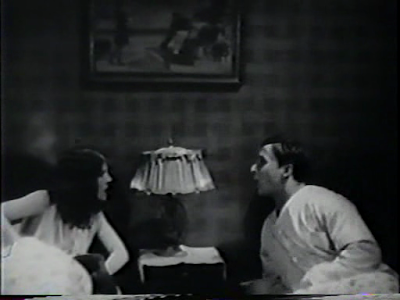


"La Journée de la joupe" - 2008


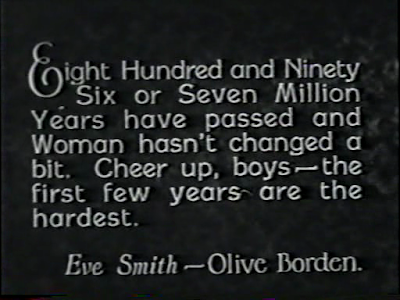


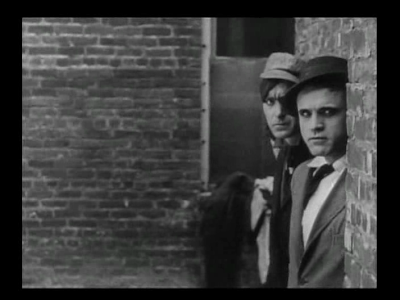


















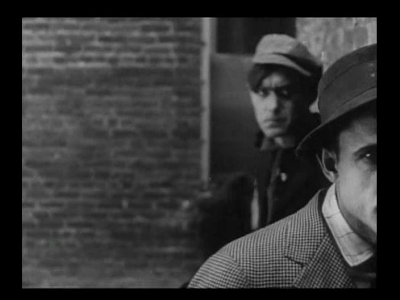


























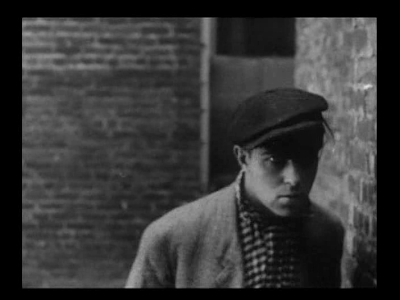



auteurs.jpg)

























